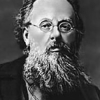Konstantin Tsiolkovsky

Konstantin Tsiolkovsky
Konstantin Eduardovich Tsiolkovsky; Polish: Konstanty Ciołkowski; 17 September 1857 – 19 September 1935) was a Russian and Soviet rocket scientist and pioneer of the astronautic theory. Along with his followers, the German Hermann Oberth and the American Robert H. Goddard, he is considered to be one of the founding fathers of rocketry and astronautics. His works later inspired leading Soviet rocket engineers such as Sergei Korolev and Valentin Glushko and contributed to the success of the Soviet space program...
NationalityRussian
ProfessionScientist
Date of Birth5 September 1857
CountryRussian Federation
Men are weak now, and yet they transform the Earth's surface. In millions of years their might will increase to the extent that they will change the surface of the Earth, its oceans, the atmosphere, and themselves. They will control the climate and the Solar System just as they control the Earth. They will travel beyond the limits of our planetary system; they will reach other Suns, and use their fresh energy instead of the energy of their dying luminary.
My entire life consisted of musings, calculations, practical works, and trials. Many questions remain unanswered; many works are incomplete or unpublished. The most important things still lie ahead.
I do not remember how it got into my head to make the first calculations related to rocket. It seems to me the first seeds were planted by famous fantaseour, J. Verne.
From the moment of using rocket devices, a great new era will begin in astronomy: the epoch of the more intensive study of the firmament.
Earth is the cradle of humanity, but one cannot remain in the cradle forever.
Mankind will not forever remain on Earth but, in the pursuit of light and space, will first timidly emerge from the bounds of the atmosphere and then advance until he has conquered the whole of circumsolar space.
The Earth is the cradle of humanity, but mankind cannot stay in the cradle forever.
All the universe is full of the lives of perfect creatures.
Consider a cask filled with a highly compressed gas. If we open one of its taps the gas will escape through it in a continuous flow, the elasticity of the gas pushing its particles into space will continuously push the cask itself. The result will a continuous change in the motion of the cask. Given a sufficient number of taps (say, six), we would be able to regulate the outflow of the gas as we liked and the cask (or sphere) would describe any curved line in accordance with any law of velocities.
From the rocket we can see the huge sphere of the planet in one or another phase of the Moon. We can see how the sphere rotates, and how within a few hours it shows all its sides successively ... and we shall observe various points on the surface of the Earth for several minutes and from different sides very closely. This picture is so majestic, attractive and infinitely varied that I wish with all my soul that you and I could see it.
A planet is the cradle of mind, but one cannot live in a cradle forever.
For me, a rocket is only a means--only a method of reaching the depths of space--and not an end in itself... There's no doubt that it's very important to have rocket ships since they will help mankind to settle elsewhere in the universe. But what I'm working for is this resettling... The whole idea is to move away from the Earth to settlements in space.
To set foot on the soil of the asteroids, to lift by hand a rock from the Moon, to observe Mars from a distance of several tens of kilometers, to land on its satellite or even on its surface, what can be more fantastic? From the moment of using rocket devices a new great era will begin in astronomy: the epoch of the more intensive study of the firmament.
Man must at all costs overcome the Earth's gravity and have, in reserve, the space at least of the Solar System. All kinds of danger wait for him on the Earth. . . . We have said a great deal about the advantages of migration into space, but not all can be said or even imagined.